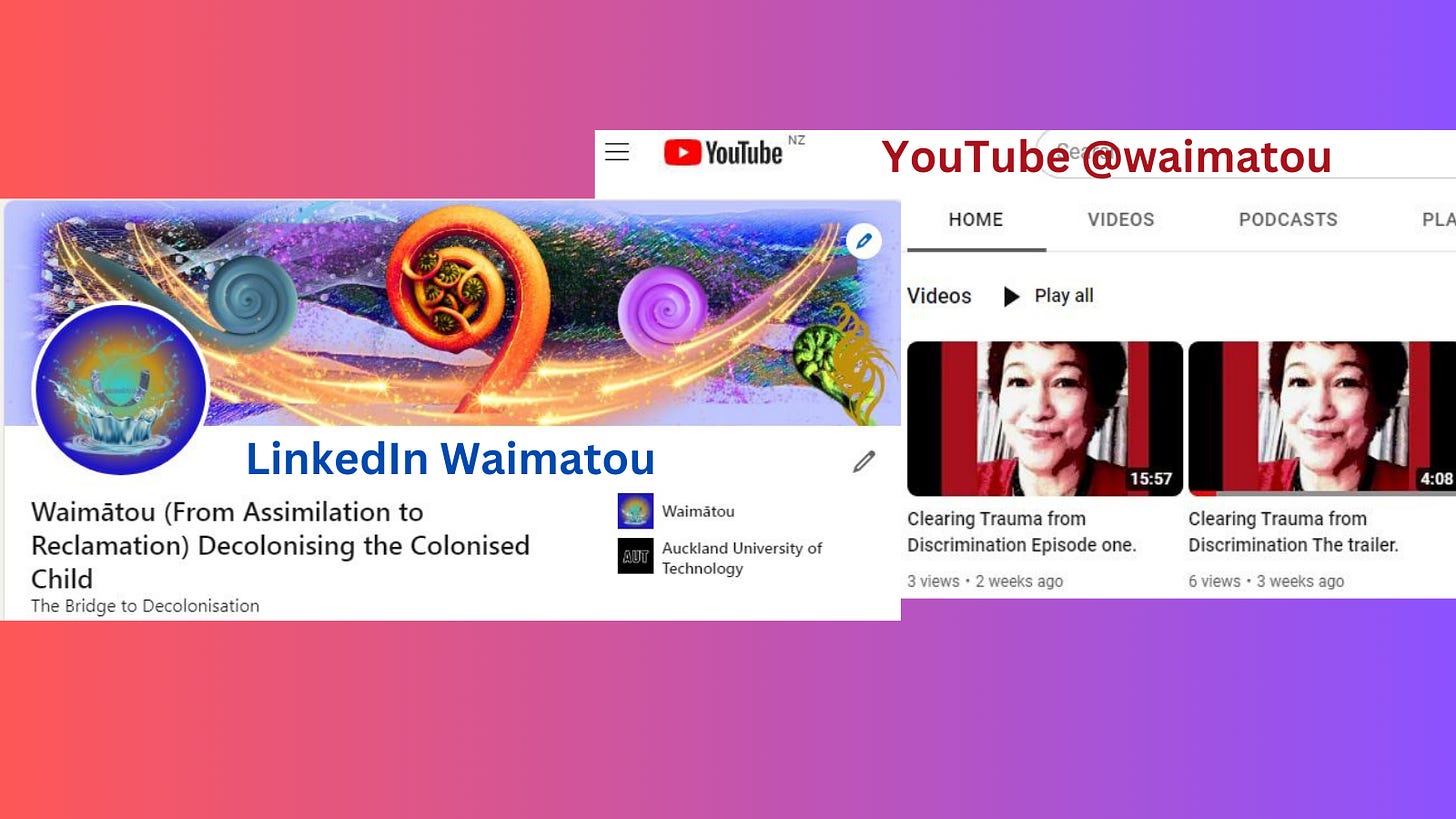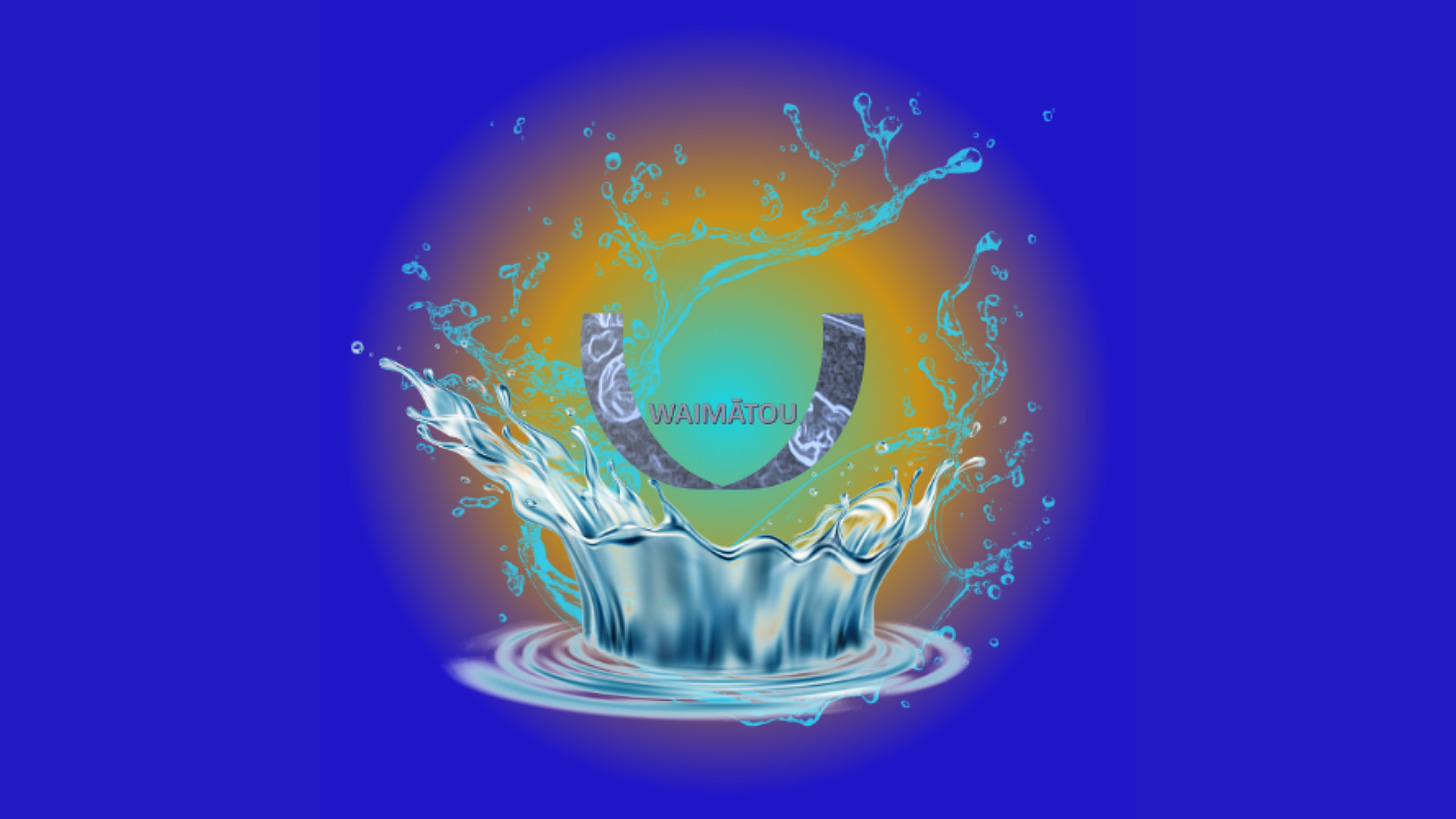Newsletter September 2023 Māori Cosmic
Waimātou’s explorations and learning for Podcasts, social media platforms, the production of digital content and the best supports for it, and not much more after that.
Podcasts. Or in my case - Long Reads.
Two so far, that each has meaning for different and the same audiences.
As for the time to listen to podcasts. Dwindles within a whirlpool of content production. Considering the time taken to absorb the information. Equals my energy to produce podcasts. Picture that as a new sunrise taking forever.
In recent weeks I’ve learnt some good tips about producing podcasts. By consuming Disney plus Only murders in the building. It made sense for me to have a visual lesson on how to make them interesting. Is not achievable at the level they’re at. Given my content isn’t about murder, the podcasts I produce will not hit number one.
Yet developing new skills in the process has been interesting and enjoyable. Especially the art * using Canva. Soundtrack creation using Soundtrap. Producing videos and using - Clipchamp to edit. Writing with software using ProWritingAid, Grammarly and Google Drive Docs. And just to name but a few. All are within my budget. We’re not a team of individuals. We’re just one person.
My professional development this past year is worth the effort. It’s not about the likes or the acceptance. Recognition comes with invitations. It is the production of mahi in all its forms and variations of topics that brings to the genre of Māori Cosmic, a fulfilment of a dream.
A dream to provide a platform to kōrero for the everyday experiences of ourselves. Up against the opposing forces, who hold us back from being who we are. In genuine uniqueness, that is only found in Aotearoa, New Zealand. Yet no one truly knows the matrix and the way it winds and whiles itself through the human whanau.
The current podcast in focus is. The Cosmic Wāhine guide to living in the Auckland CBD. It is available on Substack and soon to be on YouTube and a digital imagery TikaToka on TikTok. This is a kaupapa, organic and unfolding in the present whilst much of the content has an anchorage in the past.
I love this podcast. It’s slow to begin and the personality of the author is timid to appear crass so as not to become a stereotype. I intend the podcast to be honest. Though it means giving away truths about myself. But living anywhere in Auckland is a challenge. And when it’s under unaccompanied circumstances. I feel it’s worth documenting as close to the dial as possible.
Sharing what our biggest city can serve up to a person like me is, as I discovered through the process of writing. Boringly consistent in pattern. This will mean the podcast will stale early for some, though the true audience I hope. The true audience can find an edge to traverse safely. Through discrimination and unpopularity, pop culture un-culturing us.
Not being welcome in the CBD. I wish I’d known this sooner.
Clearing Trauma from Discrimination season one is available on Substack and coming to YouTube one episode at a time. Season two will begin on 30th October 2023 and again be aired on Substack before arriving on YouTube.
Writing about racism firstly is important for me. I gain a perspective that keeps my feet firmly planted in reality. Colonisation trauma is real and documenting the journey of that. Brings the healing to a pinnacle of hope. Because decolonisation solidifies the clearing of trauma. Yeeha.
Both podcasts have given me great insight into my life and its opportunities within our country. I can come to terms with the differences that exist. For Māori, seeking a way of life, which enhances their entire whakapapa.
Social Media Platforms (covering again)
Finding the stride, so to speak. The niche. It’s balance. Connecting to. Coordination of. To produce a good steady chunk of content, I explore the normal standard social media platforms. Because I can still access these. I’ve not gone off on anything or anyone topical.
I struggle with the homogenisation required. And, formulated processes for acceptance. But really, it’s topic, subject and feeding the collective mind. That Waimātou bridges. The approach of being direct about the colonised child on social media. Is still very new. And I’ve not come across any websites or individuals who own their colonisation journey. And own up to being colonised. Openly.
Especially in this much detail of observation and organised so that it is consumable. And not just a quick feed and then throw away.
It is being the colonised child talking about oneself. There is a stigma about it. As if there aren’t enough stigmas to live through. But it’s not the role of this newsletter to point that out. What Waimātou seeks to do is let us let go of the shame. That’s all. The dangers of being colonised without acknowledgement. This is where the potential for harm lies.
And this is what we all want us to understand and grow beyond. So that we are not reversed on ourselves. To then pass the pain onto our people. Whether mistaken or in ignorance. And this is where social media at least the better platforms provide a window into our dull brains. Especially when we are not on the correct night of creation. Te Pō is lit with an illuminating darkness that nourishes understanding.
Waimātou wants to be a part of social media. Yet the engagement process itself. Whereby posting a question or statement. That requires following up. This isn’t possible. Some responses have to be cared for. But it’s not so much for those reasons. Waimātou posts for the content being produced. Yet it struggles like so many to interact effectively on most social media platforms. When the producer of the content gets into the zone of writing.
I see it as a cook in a chic cafe, cooking loads of dishes and putting them up on the hotplate to be served up to no one in particular. But first, they never ordered the food and they passed on it because of that.
Anyone who's come into the dinner to eat. But maybe they’re not in the diner to eat? Maybe they only want coffee or tea. Or just to sit and meet up with a friend and drink water instead.
Yet the content and writing go out. They leave the author writer for social media. And its hope is to be consumed. As a writer and author, it could be like that. Having Waimātou though, gives structure to the form the content and the production.
For me, Waimātou in the present form acted as the server. And still, I don’t believe we have got to the right peeps, via the social media platform, which is simple with a touch of complexity. I know, right? Ever met such a thing before?
Production of content across specific topics, subjects and forms is for the colonised and assimilated child. They are processing the art of transformation towards decolonisation and reclamation.
One of the exciting elements of working with Waimātou. And being connected to the space it offers. Is the role it anchors in the writing and digital kaupapa of the mahi produced? Especially as it is a very niche writing market about the journeys of the colonised assimilated child.
It’s not new stuff. Just the wrapping and packaging it comes in. Might be considered as unorthodox, or not quite meeting the right tastes. The exultation of the colonised child decolonising. The assimilated child in reclamation is supposed to be secretive in their transformations.
Or told in a more academic context and the everyday tangata recalling the journey on the Marae. Done through the perspectives of struggle. On platforms related to social change. Helping us to understand the journey we’ve taken because we might not possess the initiatives of discoverability. In our colonisation and assimilation processes, which sit right at the core.
Yet these are not the only motivators for the mahi; writing, video, imagery development, art, and audio. It is the hope of healing towards illumination.
Waimātou sees that the mahi isn’t for academics, politicians, or civil servants. Or those who consider they are at the mastery level of their decolonisation already. Waimātou encourages the author and writer of the material. Who is a colonised and assimilated child, reclaiming and deconditioning constantly?
And that’s new. But not new for notification in the public domain. To counteract what is instinctive and go for that which has lived within the misunderstanding of who a Māori is.
Documentaries books, and articles are produced and provided for the public. The hope they’ll bring is subjective to the author’s work. Yet understanding and change from the need for discrimination practices. And systemic racism is surely the motivation for a better society. Especially for the colonised child decolonising.
How Waimātou writes the bridge for tangata. Is by presenting a mirror which reflects a self living in the Western collective euro-centric worlds. Of a human being striving to engage with the traditional māori path and the depth to commit to doing and being so. That striving can be elevated. The glue and clue holding us all together in this matrix is Te Reo. The language. It is foreseeable. No matter who or what.
Te Reo, Waimātou authorship, the traditional path; these kaupapa opens up many possibilities. As it unwinds the bonds and covenants, the colonised and assimilated child makes and endures. They can measure the difference between freedoms. For the discomfort they never knew existed in themselves. The trauma they suffer throughout their lives. How non-homogenisation acts as a catalyst. They have the chance to deliver the healing into their own hands.
Thank you again for taking the time to read our words and paragraphs. Please share this with someone you believe it will tautoko.
Written by Ciana Reimond on behalf of Waimātou.







